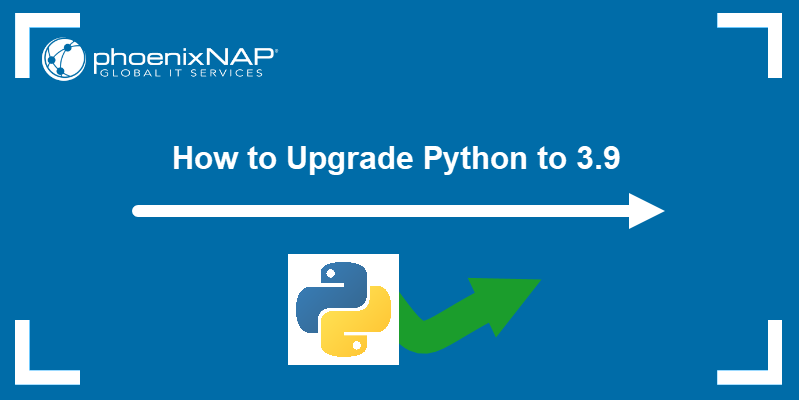

- #PYTHON UPGRADE TO 2.7.9 INSTALL#
- #PYTHON UPGRADE TO 2.7.9 UPDATE#
- #PYTHON UPGRADE TO 2.7.9 SOFTWARE#
- #PYTHON UPGRADE TO 2.7.9 WINDOWS#
That'll push you onto Python 2.7.10 but again, I don't consider that a problem in itself. If you are, you're on an end of life system (dead, dangerous) so upgrade to Wily.
#PYTHON UPGRADE TO 2.7.9 INSTALL#
If you've manually dragged a newer python2.7-minimal over, reverting to the older version is probably not too hard with sudo apt-get install python2.7-minimal=2.7.6-8ubuntu0.2 (at the time of writing) but if you've installed a PPA, you'll need to purge that.Ĭheck cat /etc/lsb-release. The reason you have 2.7.9 is down to something you've done. The versions of the python2.7 package currently distributed show that Trusty only natively gets 2.7.6. When you're recreated the base virtualenv you can just: pip install -Ur requirements.txt If you haven't already, this is a great opportunity to create a requirements.txt file in the root of your project. The quickest fix there is just re-creating the virtualenv. If you replace the system version with a new version, any static bindings from the copy to other system libraries might not align. When you create a virtualenv, it copies the executable binary out to your virtualenv.
#PYTHON UPGRADE TO 2.7.9 UPDATE#
Update from comment: If you're seeing weird missing modules in virtualenvs, that's a common symptom of your system python version being updated. The differences in release are basically just bug-fixes. Use the ‘Replace All’ command in the editor. Edit requirements.txt, and replace all ‘’ with ‘>’.
#PYTHON UPGRADE TO 2.7.9 WINDOWS#
Pip can be used to upgrade all packages on either Windows or Linux: Output a list of installed packages into a requirements file (requirements.txt): pip freeze > requirements.txt. Is this really a problem? All 2.7.* versions should be compatible. Updating Python Packages on Windows or Linux. System level updatesīefore you do anything you will need to ensure you have build-essentials installed as well as the system level libs that python needs to compile.A quick side-bar before we start breaking things.

#PYTHON UPGRADE TO 2.7.9 SOFTWARE#
I was doing the install on a brand new Ubuntu Server 14.04 LTS instance and didn't feel there was a big risk replacing the default version of Python (which was Python 2.7.6). SrivastavaShreyas/Python-Boto3, Boto3 - The AWS SDK for Python Boto3 is the Amazon Web Services (AWS) Software Development Kit. Always make a backup of your O/S before doing any server level installs. The upgrade could break other default packages installed on the server. IMPORANT: You should be extremely cautious when upgrading system level packages especially if it was installed with the default O/S version.

Since there isnt a stable version of Python 2.7.9 on the official Ubuntu repository I decided to install it by hand. I don't think it's a good idea to downgrade a library or be "stuck" on a specific verion so I upgraded the version of python running on the server. In python versions < 2.7.9 you need to install a set of extra packages (pyOpenSSL, ndg-httpsclient, pyasn1) or you can downgrade the version of requests you are using. Pillow uses a set of security features and relies on requests when installing. Req = pkg_(req)įile "/webapps/ralphlepore/local/lib/python2.7/site-packages/pip/_vendor/pkg_resources/_init_.py", line 2960, in parseįile "/webapps/ralphlepore/local/lib/python2.7/site-packages/pip/_vendor/pkg_resources/_init_.py", line 2904, in parse_requirementsįile "/webapps/ralphlepore/local/lib/python2.7/site-packages/pip/_vendor/pkg_resources/_init_.py", line 2869, in scan_list Isolated=options.isolated_mode if options else False,įile "/webapps/ralphlepore/local/lib/python2.7/site-packages/pip/req/req_install.py", line 220, in from_lineįile "/webapps/ralphlepore/local/lib/python2.7/site-packages/pip/req/req_install.py", line 79, in _init_ įile "/webapps/ralphlepore/local/lib/python2.7/site-packages/pip/basecommand.py", line 246, in mainįile "/webapps/ralphlepore/local/lib/python2.7/site-packages/pip/commands/install.py", line 324, in runįinder=finder, options=options, session=session):įile "/webapps/ralphlepore/local/lib/python2.7/site-packages/pip/req/req_file.py", line 135, in parse_requirements This prevents urllib3 from configuring SSL appropriately and may cause certain SSL connections to fail. NameVersionSummary / Licenseabstract-rendering Linux Mac0.5.1Rendering as a binning process / 3clause BSDapptools4.2.1application tools / BSDastropy1.0. local/lib/python2.7/site-packages/pip/_vendor/requests/packages/urllib3/util/ssl_.py:79: InsecurePlatformWarning: A true SSLContext object is not available.


 0 kommentar(er)
0 kommentar(er)
